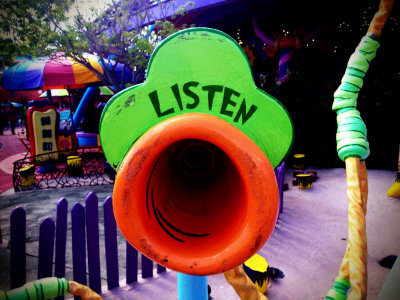
By Ash Holderness, a mental health social worker on a crisis and home treatment team in Lincolnshire. Ash is currently undertaking open dialogue training.
Open dialogue was pioneered in Finland in the 1980s. It is a psycho-social approach that involves working with the whole family or network of a person experiencing mental health crisis, rather than just the individual themselves.
The second block of open dialogue training left me with the sense that I’m beginning to understand how empowering this approach can be. But I still feel conflicted about what this means for existing practice and how accepting psychiatric services will be here in the UK.
In our everyday work, we can find ourselves endlessly interpreting what we see in others and seeking to label it. We attempt to interpret behaviours, emotions and feelings within a medical framework, in order to offer an answer as to why a person is having difficulties.
People are ‘diagnosed’ using a manual more associated with flat pack furniture than understanding the infinite complexities of human experiences.
But open dialogue offers a way of being with people who are in distress and attempting to understand, rather than interpret or instruct. As John Shotter, professor of communication at New Hampshire University and a teacher on the course, says, ‘each person is different – people talk the same talk, they do not walk the same walk’.
‘Unconditional acceptance’
A key concept in open dialogue is learning to ‘unconditionally accept the other’. This principle suggests you cannot force others to accept your own understanding of their experience. While you challenge what the person negates in their story, you should unconditionally accept it.
In my working life I’ve seen my attempts to persuade those who have a negative self-image otherwise often fall on deaf ears, leading me to ask the question: “If we only accept the person’s understanding of their experience, how does this encourage change?”
The key, as I would see it, is in the uniqueness of the dialogue and having the ability to become dialogical (a skill that I’m still practising). But my concern is that this change takes time, time that is unlikely to be afforded in the ever shrinking services we find ourselves.
‘Changing together’
I am, however, sensing the change that can occur in us all if we are dialogical. Open dialogue talks about the co-evolution during the ‘treatment’, stating that we can’t expect others to change if we are not willing to change ourselves. It’s the idea that we ‘do together’, rather than doing towards.
The dialogue appears to be not about listening but hearing, not looking but seeing, becoming emotional attuned to the other.
The set reading made me realise that bringing about change in others dialogically can be about offering your own stories or concerns, not as a comparison but by seeking genuine answers to a personal dilemma. Sincerity can encourage personal reflections from others.
This principle of changing together and not instructing others is at the core of the approach, making open dialogue an uneasy bed fellow with the DSM-5 manual. There is not one truth, no instructions, no manual. But if we are going to embrace this understanding of mental health, we must drop our obsession with a ‘one size fits all’ service delivery.
‘Open dialogue is an opportunity for post-psychiatry evolution not anti-psychiatry revolution’


 Bournemouth, Christchurch and Poole
Bournemouth, Christchurch and Poole  Hampshire County Council
Hampshire County Council  Lincolnshire County Council
Lincolnshire County Council  Norfolk County Council
Norfolk County Council  Northamptonshire Children’s Trust
Northamptonshire Children’s Trust  South Gloucestershire Council
South Gloucestershire Council  Wiltshire Council
Wiltshire Council  Wokingham Borough Council
Wokingham Borough Council  Children and young people with SEND are ‘valued and prioritised’ in Wiltshire, find inspectors
Children and young people with SEND are ‘valued and prioritised’ in Wiltshire, find inspectors  How specialist refugee teams benefit young people and social workers
How specialist refugee teams benefit young people and social workers  Podcast: returning to social work after becoming a first-time parent
Podcast: returning to social work after becoming a first-time parent  Podcast: would you work for an inadequate-rated service?
Podcast: would you work for an inadequate-rated service?  Family help: one local authority’s experience of the model
Family help: one local authority’s experience of the model  Workforce Insights – showcasing a selection of the sector’s top recruiters
Workforce Insights – showcasing a selection of the sector’s top recruiters 

 Facebook
Facebook X
X LinkedIn
LinkedIn Instagram
Instagram
Comments are closed.